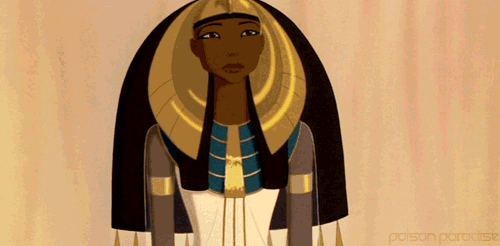mulatoomcmxci:steppauseturnpausepivotstepstep:babybutta:yarrahs-life:high-power-prolific:t
mulatoomcmxci: steppauseturnpausepivotstepstep: babybutta: yarrahs-life: high-power-prolific: thehereticpharaoh: People really don’t believe Ancient Egyptians were ethnically African? They referred to themselves, not as ”Egyptians” (a Greek term) , but as ”Kemmui’’, meaning, ”the blacks”. The country itself they called, Kemet, or black nation. ‘Kem’ is the term for black in the ancient Egyptian language. It is represented in hieroglyphs by a stick charred at both ends.” “km.t, the name of Ancient Egypt in Egyptian; Egypt (Coptic: Kemi) r n km.t, the native term for the Egyptian language (Ref: The Egyptian Hieroglyphic Dictionary, Vols 1&2, E.A. Budge, Dover.) Note: words inside brackets are the determinatives or word classifiers along with their English meanings. Kem, kame, kmi, kmem, kmom = to be black Kememu = Black people (Ancient Egyptians) in both Ancient and modern Egyptian (Kmemou). Kem [khet][wood] = extremely black, jet-black Kemet = any black thing. Note: “t” is silent - pronounced Kemé Kemet [nu][community, settlement, nation] = Black nation = Ancient Egypt. Kemet [Romé][people] = Black people. Ancient Egyptians. Kemit [Shoit][books] = Black books, Ancient Egyptian literature. Kem wer [miri][large body of water] = The Great Black sea (The Red sea). This sea is neither black nor red, this is in reference to which nation, Black or Red, at a particular time, controlled this body of water. Kemi fer = Black double house; seat of government. Note: by reference to Wolof again, we know that to make a plural of per or house, the “p” becomes an “f” or fer. Thus fero=great houses (double), it is not pero as Budge writes. In Ancient Egyptian, the ordinary adjective always follows the noun it modifies, whereas a sanctified adjective usually comes before its noun. The sanctified adjectives are: Kem — Black Suten - Royal Nter —- Holy, Sacred Examples: Kem ti = Black image, sacred image : ti oubash = white image Kem ho = Black face/title of a god : ho oubash = white face Kem ta = Black land, holy land : Ta deshret = Red land (also; Ta Sett) This rule does not apply when Black is used as a noun-adjective of nationality: Hompt Kemet = copper of Black; Egyptian copper : Hompt Sett = copper of the Red nations; Asiatic copper Ro in Kemet (page 416a) = speech of Black; mute ro n Kemet = word of the mouth of Black; the Egyptian language Kemet Deshret = Black and Red; good and evil; fertile and barren, etc.; Duality Deshretu (page 554a,b) = red ones, red devils. Used also to refer to the Namu and Tamhu; not a complimentary label. African Origins: The following Ancient Egyptian words acknowledge the origins of Pharaonic Egyptian civilization; Khentu Hon Nefer (page 554a) = founders of the Excellent Order. Budge: “peoples and tribes of Nubia and the Egyptian Sudan.” For “Hon” see page 586b. Hon Nefer (page 1024b) = Excellent Order Kenus (page1024b) = mighty; brave (from Kenu, page 772a) Ta Khent (page 1051b/page 554b) = land of the beginning. Eau (page 952b/page 17b) = the old country Ancient Egyptian’s Worldview: The Egyptian’s view of the world was the exact opposite of the current Western one. To the Egyptian, the top of the world was in the south (upper) towards the African interior, the bottom (lower) towards the north, hence upper and lower Egypt; upper and lower Syria.” "Oh yes, the black soil business. Most scholars outside the modern western cover-up establishment have rejected the false interpretation some have given to Kemet, ostensibly alluding the term Kemet to the alleged ”black soil” of Egypt. There’s nothing in the term, outside the imagination of western myth-makers, to suggest the Egyptians referred to the color of the soil or sand, rather than the people, in naming their country. Our position is consistent with the testimony of the ancient Greek writers, eyewitnesses who unanimously described the Egyptians as a black people, closely related to the ”Ethiopians”.” And white Hollywood casts white actors and gives them tans. *internal sobbing* i will never not reblog this. i know too many people who for real dont think Egypt is a part of Africa. KNOW YOUR HISTORY -- source link
